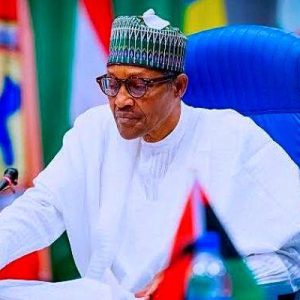The United States’ decision to reduce visa validity for Nigerian nationals from five years to just three months is set to deliver a major blow to Nigeria’s economy, its tech ecosystem, students, and international businesses, former Nigerian ambassador to the US, Joe Keshi, has warned.
Effective July 8, the US began issuing only three-month single-entry visas to Nigerians, sparking outrage among government officials and travel stakeholders. Although the US Embassy in Nigeria said the change was part of a global review aimed at safeguarding its immigration system, Nigerian officials and analysts say the move disproportionately hurts Nigerians and could worsen corruption in the already difficult visa application process.
Keshi, Nigeria’s former consul in Atlanta, said the decision is a diplomatic setback with far-reaching consequences for frequent travellers, particularly businesspeople, students, and professionals in the tech and innovation sectors.

“This policy will increase corruption in the process. No embassy, particularly in Nigeria, will tell you there’s no corruption in visa issuance. With this new system, Nigerians will pay more, more frequently, and likely be forced into using middlemen. It will frustrate legitimate travellers,” he said.
The Nigerian government has disputed the US’s justification. While the embassy initially cited “reciprocity” as the reason, it later reversed itself, stating that the change had no link to visa treatments for US citizens or to Nigeria’s alleged rejection of deportees from Venezuela. Foreign Minister Yusuf Tuggar, however, suggested that Nigeria’s refusal to accept deportees was likely a contributing factor.
“It will be difficult for a country like Nigeria to accept Venezuelan prisoners into Nigeria. We have enough problems of our own,” Tuggar said on live television, arguing that Nigeria cannot take responsibility for people with no legal ties to the country.
Keshi, who described the new regime as punitive, said it reflects Nigeria’s weak diplomatic leverage and failure to build genuinely strategic relationships with the United States.
“For too long, we have deceived ourselves with the idea that Nigeria has a strategic relationship with the US. We do not. How can we compare Nigeria’s importance to the US with that of Israel or Egypt? Those countries have deep-rooted bilateral engagements. Nigeria, on the other hand, has no real foundation for negotiation,” he said.
For ordinary Nigerians, the consequences are already visible. Business travellers now face more frequent visa renewals, students must contend with rigid timelines and increased costs, and startups eyeing the US market are caught in administrative delays that could stifle investment.
This is not just a matter of inconvenience,” Keshi added. “It is about access, cost, credibility, and the shrinking of opportunities for young Nigerians in the global space.”
Industry watchers also say the development could discourage US investment in Nigeria, which is already limited compared to countries like South Africa. While South Africa reportedly hosts over 6,000 US companies, Nigeria struggles to attract and retain large-scale American firms due to insecurity, bureaucratic hurdles, and inconsistent policy environments.
Keshi advised the Nigerian government to act fast by reopening negotiations and fixing what he described as a “failed implementation” of an earlier agreement between the two countries for a five-year visa system.
“It’s not enough to sign agreements and not implement them. The US began theirs immediately. Nigeria delayed. We must take responsibility and re-evaluate our entire visa framework, not just with the US, but with the UK and other Western nations charging exorbitant fees for access that Nigerians are struggling to afford,” he said.
In a veiled criticism of Nigeria’s foreign policy posture, the former envoy added that the country should stop overstating its diplomatic clout and instead focus on trade productivity, particularly in manufacturing and technology.
“Our currency is weak because our economy is not productive. We import too much and export too little. We don’t offer strategic value in trade relationships. That’s why we get slapped with these kinds of policies,” he said.
He also warned that if Nigeria continues to mismanage its global image, including mishandling issues related to deportees and international obligations, the country may face further restrictions from other Western nations.
“We need to clean our house. The image of Nigeria abroad is not just tarnished by ordinary citizens but by government decisions and inaction. We should start by fixing our own visa policies and showing seriousness in bilateral agreements,” he said.
Stay ahead with the latest updates!
Join The Podium Media on WhatsApp for real-time news alerts, breaking stories, and exclusive content delivered straight to your phone. Don’t miss a headline — subscribe now!
Chat with Us on WhatsApp






